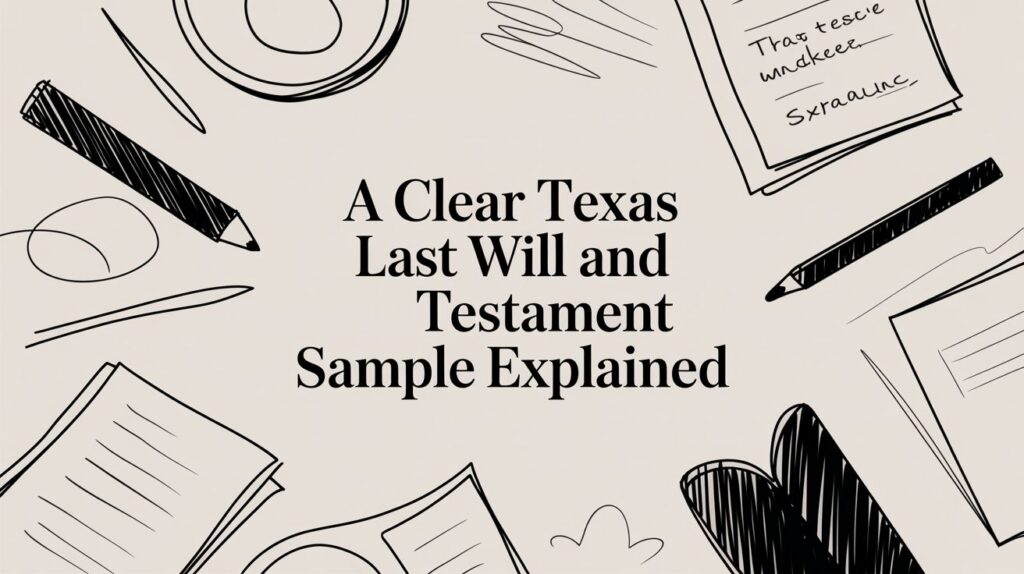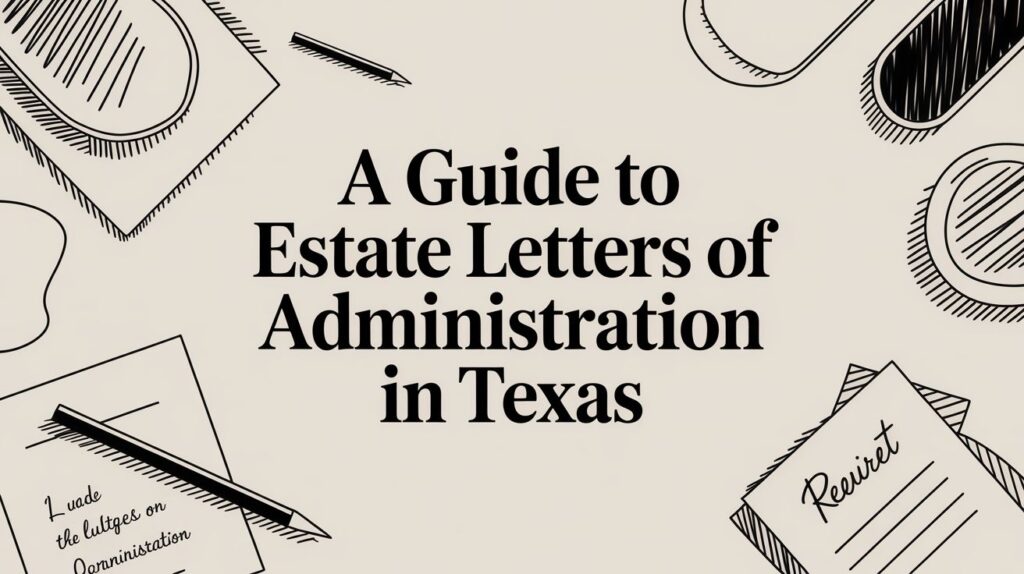Dealing with probate can be an overwhelming task, especially when it involves real estate. If you’ve found yourself grappling with the probate process in Texas, one critical element to understand is the statute of limitations. Essentially, this legal concept places a time limit on the ability to bring certain claims or initiate proceedings. When it comes to real estate, the statute of limitations plays an important role in determining how long you have to settle an estate or claim property rights. In this comprehensive guide, we’ll break down the intricacies of the statute of limitations for real estate probate in Texas, how it applies to various situations, and why it’s crucial to act promptly.
What is the Statute of Limitations?
The statute of limitations is a countdown that limits how long a person has to file a legal claim/take action. Its purpose is to ensure that claims are made in a reasonable time frame. The purpose of this is to preserve the integrity of the legal process. Once the period defined by the statute of limitations expires, certain claims or actions may no longer be pursued.
In the context of probate, this time limit is crucial, especially when real estate is involved. Without understanding and acting within the statute of limitations, there are several consequences. You could risk losing the opportunity to claim rightful inheritance, transfer ownership, or settle property disputes.

Texas Probate Law and Real Estate: An Overview
In Texas, probate law governs the process of managing and distributing a decedent’s estate. Probate involves validating the deceased’s will (if there is one), paying off debts, and distributing the remaining assets—including real estate—to heirs and beneficiaries.
Real estate is often one of the most valuable and complicated assets in a probate estate. Whether it’s a family home, investment property, or land, understanding how the statute of limitations applies is critical.
Generally speaking, Texas probate law provides relatively straightforward paths to probate a will. However, complications can arise when real estate is involved—particularly when the probate process is delayed or disputes over property ownership emerge.
How the Statute of Limitations Affects Real Estate Probate
When dealing with real estate, several different statutes of limitations could come into play depending on the circumstances:
1. Filing for Probate of a Will
In Texas, the rule for probating a will is that it must be within four years of the decedent’s death. This is a crucial deadline to keep in mind. If probate is not initiated within this time frame, the will may no longer be considered valid for transferring property.
However, even after the four-year period has expired, there are exceptions. For example, if someone didn’t know about the will and was unaware of the decedent’s death, they may still be able to file for probate under the doctrine of “late probate.” In such cases, the probate court might allow probate under limited circumstances. However, any real estate transfers will be handled more cautiously.
2. Statute of Limitations for Contesting a Will
Another important aspect of the statute of limitations in Texas probate law concerns the timeframe for contesting a will. If an heir or beneficiary wants to challenge the validity of a will, they must do so within two years after the will has been admitted.

Real estate beneficiaries should take special note of this time limit. This is particularly necessary if they believe there was misconduct surrounding the will’s creation. Missing this deadline can result in losing any chance of contesting the will’s provisions.
3. Statute of Limitations for Adverse Possession
Sometimes, real estate can be subject to claims by third parties under a concept known as adverse possession. This occurs when someone occupies a property openly, without the owner’s permission, and meets certain legal requirements over a specified period.
In Texas, the statute of limitations for adverse possession varies based on the circumstances. Common timeframes include 3, 5, 10, and 25 years. This depends on factors like how long the person has possessed the property and whether they have a valid claim of right. Heirs or executors dealing with probate real estate should be mindful of this statute when discovering that another party is occupying the property.
4. Claims by Creditors
Probate doesn’t just involve transferring property to heirs—it also requires paying off the decedent’s debts. Creditors have a limited time to make claims against the estate. Under Texas law, creditors typically have four years from the date of death to file claims.
For real estate beneficiaries, it’s important to know that debts could affect the property’s status in probate. If there are outstanding debts tied to real estate, the property might need to be sold to satisfy these claims. However, once the statute of limitations for creditors expires, their ability to make claims against the estate may be limited.
What Happens if You Miss the Statute of Limitations?
Missing the applicable statute of limitations for probate-related matters can lead to serious consequences:
- Loss of Rights to Inherit Real Estate: If you fail to file for probate within four years of the decedent’s death, the real estate might not be transferred according to the will. As such, the heirs could lose their inheritance.
- Inability to Contest a Will: If you don’t challenge the will within the statute of limitations, the probate court will assume the will is valid.
- Adverse Possession: If someone else is occupying the property and you don’t act within the relevant statute of limitations, they could gain legal ownership of the real estate through adverse possession.
In all of these situations, missing the deadline could result in losing property rights, inheritance, or other legal claims.
Common Scenarios Involving Real Estate Probate Statutes of Limitations
Let’s take a closer look at some real-world situations where the statute of limitations for real estate probate comes into play:
1. Probate Delays and Real Estate Ownership
Imagine a family that learns about the death of a relative, but for various reasons, no one initiates probate. Years pass, and eventually, one of the heirs decides to probate the will to transfer the family home to their name. Unfortunately, because it’s been more than four years since the decedent’s death, the probate court may not allow them. Now, they may need to seek alternative legal avenues for transferring the property. This could include filing for a determination of heirship or attempting a late probate.
2. Adverse Possession on Unattended Property
Consider a situation where the decedent owned a rural piece of land that was never probated or transferred to heirs. Over time, a neighboring farmer begins using the land for grazing cattle. Decades later, the heirs decide to claim the property during probate proceedings, only to find that the farmer has already obtained legal ownership through adverse possession. In this case, the heirs would be out of luck, having missed their window to challenge the farmer’s possession within the relevant statute of limitations.
3. Contesting a Will After Discovery of Fraud
Let’s say you find out a few months after probate begins that your sibling manipulated your elderly parent into changing their will to leave all the real estate to them. You believe this was done through fraud or undue influence. Under Texas law, you would have two years from the date the will was admitted to file a formal contest with the court. If you wait too long, your opportunity to contest the will and potentially recover the real estate will vanish.
How to Protect Your Rights: Acting Within the Statute of Limitations

The best way to safeguard your rights during real estate probate is to take proactive steps as soon as you become aware of the probate process. Here are some tips to ensure you don’t miss critical deadlines:
- File for Probate Promptly: As an executor or heir, start the probate process as soon as possible. Don’t wait until the statute of limitations is about to expire.
- Consult an Attorney: Probate and real estate law can be highly complex. Consulting with an attorney who specializes in Texas probate law will help ensure that you comply with deadlines and avoid costly mistakes.
- Stay Vigilant with Property Occupation: If you discover that someone is occupying the decedent’s real estate, take immediate action. Investigate their claim and assess whether adverse possession laws could affect the property.
- Communicate with Creditors: If you’re an executor, work closely with the decedent’s creditors to ensure that any outstanding debts are paid.
- Monitor for Disputes: Keep an eye on potential disputes among heirs or beneficiaries, and address these issues promptly.
Essential Deadlines for Texas Real Estate ProbateConclusion: Understanding the Time Constraints in Texas Real Estate Probate
Real estate is often one of the most valuable assets in an estate. As such, understanding the statute of limitations is essential for ensuring that property is transferred smoothly and fairly. Texas probate law sets specific timeframes for filing probate, contesting wills, and resolving other real estate-related matters. As a result, it is crucial to act within these deadlines. By familiarizing yourself with these legal time limits and seeking professional guidance when needed, you can navigate the complexities of probate. Whether you’re an executor or a beneficiary, understanding the statute of limitations for real estate probate in Texas will help you avoid unnecessary legal complications and secure the estate’s future.








